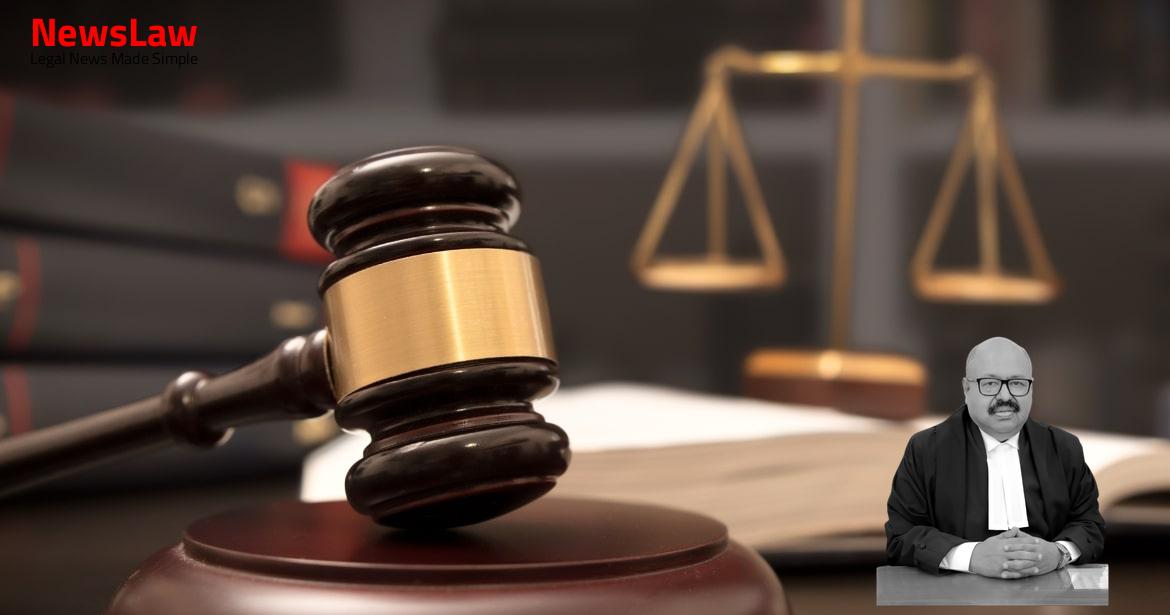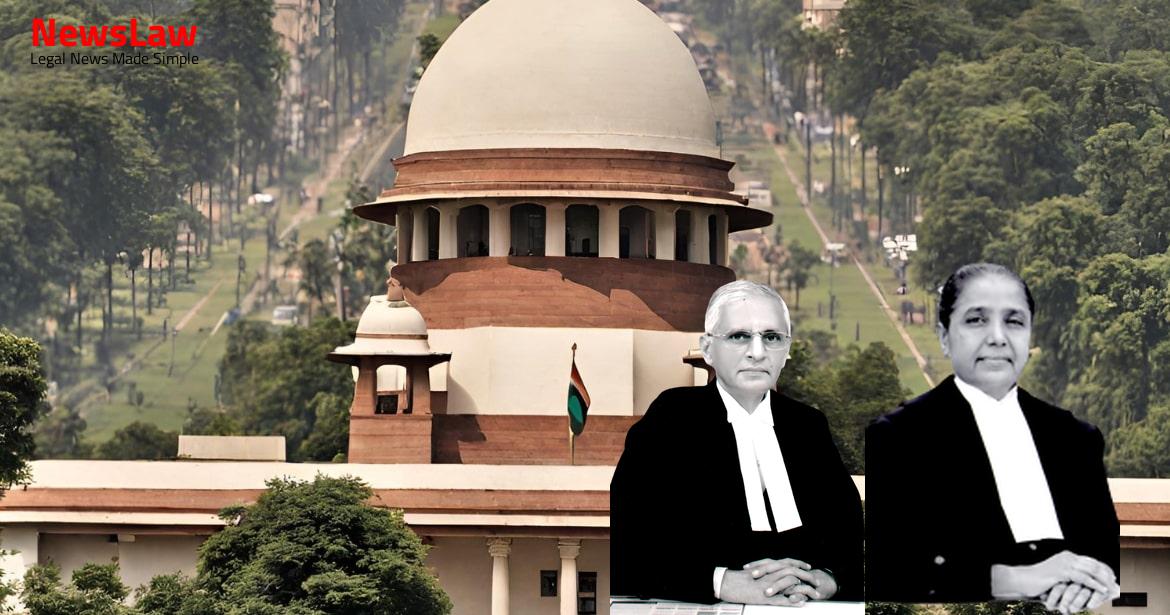The appellants herein approached the High Court under Section 482 of the Code of Criminal Procedure, 1973 (Cr.P.C.) seeking quashment of F.I.R. and also the ongoing investigation pursuant thereto, raising various contentions that the application moved by the respondent herein before the learned Magistrate did not disclose commission of any cognizable offence, that the allegations in the complaint are actuated by mala fides, that the allegations would reveal that they pertain to pure civil dispute between the parties and in fact the respondent did resort to civil remedies, that he failed in obtaining favourable order in interlocutory applications moved in a duly instituted suit and upon its frustration and as a tool for oppression and harassment he moved the application which culminated in the registration of the F.I.R. 1 and 2 therein viz., the appellants herein, and their men, agents and associates from procuring and/or creating any document illegally and/or from obstructing him in representing as the Secretary of the Managing Committee, is pending before the First Court Civil Judge (Junior Division) at Barasat.
and the investigation pursuant thereto qua the appellant, in the facts and circumstances of the case and in view of the settled position in the matter of exercise of inherent powers under Section 482, Cr.P.C. Case No 538/2017, against Shri Shankar Biswas, Shri Debashis Roy and the appellants herein seeking for a direction to conduct investigation under Section 156(3), Cr.P.C.
189/17 dated 11.4.17 U/s 323/384/406/423/467/468/420/120B I.P.C. No., 1459/17 dated 22.3.2017 and application Submitted on 27.3.2017 to Superintendent of Police North 24 – parganas Application under the aforesaid Section And Sections 323/384/406/423/467/468/420/120B IPC And Section 156(3) of Cr.P.C. Sd/-
Jayanta Banerjee 2)
The Accused persons are in different post of the Managing Committee of the said School. The complainant having made process of the said incident, the said person abused the complainant and assaulted him and Accused No. 3) The accused persons joke the complainant out of the said School by force illegally and withheld all necessary papers and documents of the complainant.
4) The said accused person has usurped misappropriated the amount of Provident Fund payable to the complainant and the document relating to the same when the complainant make enquiry from EPS Office Titagarh with the Provident Fund A/C. Investigation of the said incident be done and the accused persons are properly punished. Madhaymgram, District North 24-Parganas, Kolkata – 700 129, Nationality India, faith Hindu, declare to the effect that: 1) I am the applicant in this Application.
Before adverting to the rival contentions with reference to application under Section 156(3), Cr.P.C. within the parameters, we think it only appropriate to refer to the following decisions of this Court in respect to the scope of exercise of power under Section 482, Cr.P.C. In such a situation, if a civil remedy is available and is, in fact, adopted as has happened in this case, the High Court should not hesitate to quash the criminal proceedings to prevent abuse of process of the court.” 2 In Vesa Holdings Private Limited and Anr.
In our opinion in view of these facts allowing the police investigation to continue would amount to an abuse of the process of the court and the High Court committed an error in refusing to exercise the power under Section 482 of the Criminal Procedure Code to quash the proceedings.” Bhajan Lal, a two Judge Bench of this Court considered the statutory provisions as also the earlier decisions and held as under: – (1) Where the allegations made in the first information report or the complaint, even if they are taken at their face value and accepted in their entirety do not prima facie constitute any offence or make out a case against the accused. (5) Where the allegations made in the FIR or complaint are so absurd and inherently improbable on the basis of which no prudent person can ever reach a just conclusion that there is sufficient ground for proceeding against the accused.
From the aforesaid decisions of this Court, right from the decision of the Privy Council in the case of Khawaja Nazir Ahmad (supra), the following principles of law emerge: i) Police has the statutory right and duty under the relevant provisions of the Code of Criminal Procedure contained in Chapter XIV of the Code to investigate into cognizable offences; ii) Courts would not thwart any investigation into the cognizable offences; iii) However, in cases where no cognizable offence or offence of any kind is disclosed in the first information report the Court will not permit an investigation to go on; iv) The power of quashing should be exercised sparingly with circumspection, in the ‘rarest of rare cases’. The inherent power of the court is, however, recognised to secure the ends of justice or prevent the above of the process by Section 482 Cr.P.C. Therefore, when the investigation by the police is in progress, the court should not go into the merits of the allegations in the FIR. It would be premature to pronounce the conclusion based on hazy facts that the complaint/FIR does not deserve to be investigated or that it amounts to abuse of process of law.
Kapur (supra) and Bhajan Lal (supra), has the jurisdiction to quash the FIR/complaint; and xv) When a prayer for quashing the FIR is made by the alleged accused, the court when it exercises the power under Section 482 Cr.P.C., only has to consider whether or not the allegations in the FIR disclose the commission of a cognizable offence and is not required to consider on merits whether the allegations make out a cognizable offence or not and the court has to permit the investigating agency/police to investigate the allegations in the FIR.” We will now, carefully scan the application filed by the respondent herein which was forwarded for investigation under Section 156 (3), Cr.P.C to consider whether the appellant is justified in taking up the contention that the allegations raised thereunder did not contain the ingredients to constitute the alleged offences or whether the respondent had made out a prima facie case for investigation.
(i) Entrustment of the property or any dominion over property with accusation; (ii)
Also Read: https://newslaw.in/case-type/criminal/suppression-of-material-facts-and-fraud-on-the-court/
The person entrusted dishonestly misappropriating or converting to his own use that property; or dishonestly using or disposing that property in violation of any direction of law prescribing the mode in which such trust is to be discharged or of any legal contract, express or implied, which he has made touching the discharge of such trust or willfully causing suffering to any other person so to do. Virtually, the offence under Section 467 is an aggravated form of the offence under Section 466, IPC.
To constitute the said offence there must be deception i.e., the accused must have deceived someone; that by such deception the accused must induce a person (i) to deliver any property; or (ii) to make, alter, destroy a whole or part of the valuable security or anything which is signed or sealed and which is capable of being converted into a valuable property; or (iii) that the accused must have done so dishonestly. The recital in paragraph 2 of the application filed by the respondent would reveal his case that the accused persons kept him in dark and without giving any information by strengthening the said trust deed illegally got the same registered on 12.07.2016 and removed him from the said post. In the counter affidavit filed in this proceeding, the respondent has virtually admitted the pendency of the suit filed against his removal from the post of Secretary and the trusteeship and its pendency. Obviously, it can only be taken that since the removal from the office of the Secretary and the trusteeship was the causative incident, he concealed the pendency of the civil suit to cover up the civil nature of the dispute.
In other words, if such allegations in the petition are vague and are not specific with respect to the alleged offences it cannot lead to an order for registration of an F.I.R. The ingredients to attract the alleged offence referred to hereinbefore and the nature of the allegations contained in the application filed by the respondent would undoubtedly make it clear that the respondent had failed to make specific allegation against the appellants herein in respect of the aforesaid offences.
Case Title: USHA CHAKRABORTY Vs. STATE OF WEST BENGAL (2023 INSC 86)
Case Number: Crl.A. No.-000256-000256 / 2023



